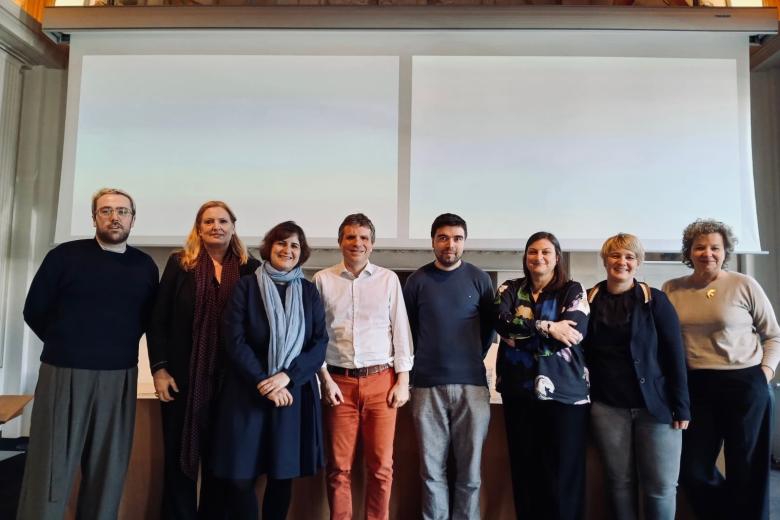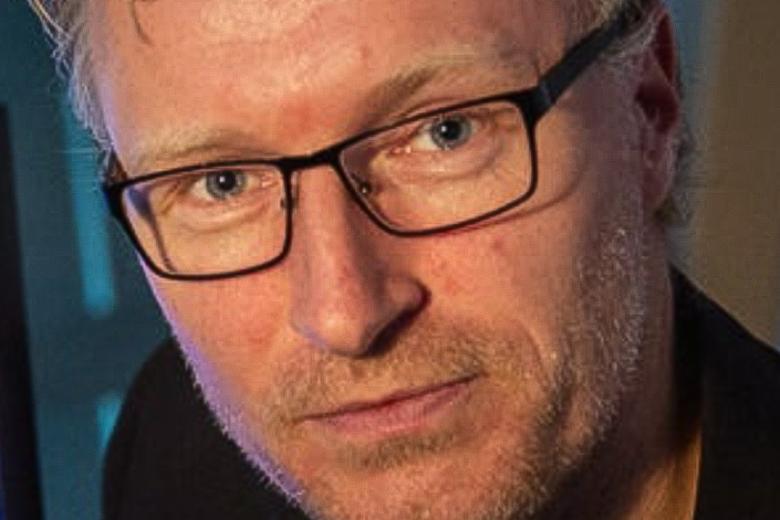The revolution will not be telegrammed
The ongoing mass protests in the streets of Belarus since Alexander Lukashenko’s very decisive and – most agree – very dodgy election victory have been hailed ‘the Telegram Revolution’, after a messaging app. UM’s Mariëlle Wijermars tries to add some nuance to this notion and reflects on the role of social media in distorting our access to information. If you appreciate nuance and reflection, please like and subscribe…
“I became a Russia expert more or less by accident,” says Mariëlle Wijermars, Assistant Professor in Cyber-security and Politics. She had started learning the language for fun during her degrees in International Relations, then went on to gain a second master’s degree in Russian Studies. She spent time in the country researching her PhD on how the Russian government is controlling historical narratives to legitimise the current regime.
Like most area studies specialists, she is somewhat conflicted: “I study internet surveillance practices and censorship by the Russian government – naturally I’m not a fan. At the same time I’m getting quite frustrated with the simplistic narrative about Russia in our media.” Wijermars does her best to balance an academic’s dedication to complexity with the obligations of a taxpayer-funded specialist to make research available and accessible to a general audience.
Violent crackdown? There’s an app for that
“There’s a very uneasy relationship between digital communication and politics. And the story we tell is too simplistic.” When Western media had to make sense of the Arab Spring, the exceedingly self-congratulatory narrative that quickly developed was one of Silicon Valley-based consumer capitalism overcoming all. The protests were dubbed ‘the Twitter Revolution’.
Once Western media started referring to the situation in Belarus as ‘the Telegram Revolution’, Wijermars felt compelled to add some nuance: together with three experts on protest movements in Belarus and Ukraine, she wrote a piece for the Washington Post. “The role of Telegram, a messaging app that allows for encrypted information exchange in relative privacy, is fascinating – but it also shouldn’t be overstated. The situation is far more complex.”
Non così bella-rus
Alexander Lukashenko, Belarus’s president since 1994, claimed to have won elections on 9 August 2020 with an unassuming 80% of the vote. His main opponent was Svetlana Tikhanovskaya, running in lieu of her husband, the activist Sergei Tikhanovsky, who had been imprisoned. Belarusian and international observers called foul play. “Most estimates, ballot counts and exit polls suggest it was rigged. The Belarusian people took to the streets.”
Lukashenko blocked the internet for several days. Riot police arrested thousands of peaceful protesters, with reports suggesting that security forces were resorting to violence and torture. This, in turn, led to ongoing protests around the country – despite online censorship. “People used VPNs or received news via Telegram, also from the Belarusian diaspora. Telegram also played a part in interpersonal communication.”
Belarusians’ courage and solidarity
Big tech to the rescue then? “It played a part in sharing information but this narrative ignores the importance of human interaction. The research from the MOBILISE project, cited in the article, shows that the internet has not been central in mobilising and coordinating. Seeing protesters in the street being arrested and harassed is what spurred people on to join the protests. Social media facilitated that but a lot was actually word of mouth.”
In the first days after the election, the internet was shut down entirely and Belarusians relied on posters, leaflets and – quaintly enough – talking to each other. “There were huge meetings of factory workers – Lukashenko’s traditional support base – and a show of hands revealed that most of them had not voted for him. Election officials also showed great courage to share the results from certain polling stations casting doubt on the overall result. It was about people, not technologies.”
Expertise and accessibility
That is not to deny the importance of digital technologies and communication, one of Wijermars’ research topics. She thinks healthy, nuanced public discourse is vital to civic society – and she is willing to do her part and actively share her expertise with the public. “Of course I’m a bit wary that people might take things out of context… It’s important to know how journalists work and what they need.”
Wijermars appreciates that this might be difficult for academics. “You write very complex papers in which every word has to be correct and precise so you don’t get attacked by your peers. When talking to the media you need to be aware of the audience’s level of understanding. I try to focus on one important nuance and try to embed that in the established narrative. But you have to choose and make it brief and accessible.”
Hyperbolic headlines versus calm content
As an expert on how digital technologies affect media practices, Wijermars understands the pressures media outlets are facing. “How we engage with and consume news has changed. The need to monetise online engagement entails hyperbolic headlines – even above balanced articles – since those will trigger more people.” Internet censorship in Belarus is a clear-cut case, but the free media reporting on it is equally interesting – though for different reasons.
Highly personalised news feeds and simplistic, biased reporting – both due to commercial pressure to drive engagement – are a divisive force in society since they erode the basis for public discourse. “There’s growing awareness that online information is problematic. Paid subscriptions for news sources are actually increasing – but not necessarily across society, so this might lead to further stratification.”
And that’s before we take into account fake news. “Research shows that people aren’t aware of the sources of the headlines in their newsfeed – there is no accountability and no common ground for conversation, like you had when large swathes of the population followed a public broadcaster or a handful of newspapers. That is dangerous when it forms the basis for political opinion and discourse, for example. It’s important that we keep researching that and make people aware of it.”
Photo UM homepage: Wikimedia Commons, Homoatrox | CC BY-SA 3.0

Dr Mariëlle Wijermars is Assistant Professor in Cyber-Security and Politics at the Faculty of Arts and Social Sciences (FASoS). She conducts research on internet governance with a focus on the impact of internet policy on human rights, and on the framing of cyber threats and policy responses. She has recently coedited the Palgrave Handbook of Digital Russia Studies, which presents a multidisciplinary perspective on how the ‘digital’ is simultaneously changing Russia and the research methods scholars use to study Russia.
Also read
-
Jolijn: “During the day I study medicine. In the evening, I am on stage singing and dancing”
During the opening of the academic year, Jolijn van Vugt was singing and dancing on stage at Theater aan het Vrijthof. As a performer, to be precise. The 21-year-old medical student manages to combine her studies with singing and dancing at an advanced level. She dances at the Oxygen dance school in...

-
Globalisation & Law Network seminar with Damian Chalmers
On 4 November 2025, the Globalisation & Law Network had the honour of welcoming Prof. Damian Chalmers to discuss his paper “The EU’s Governing by Legal Shadows”.

-
Moles in your living room: using augmented reality in neurorehabilitation
How can you use digital moles to help patients with Parkinson's? Melvyn Roerdink explains.
